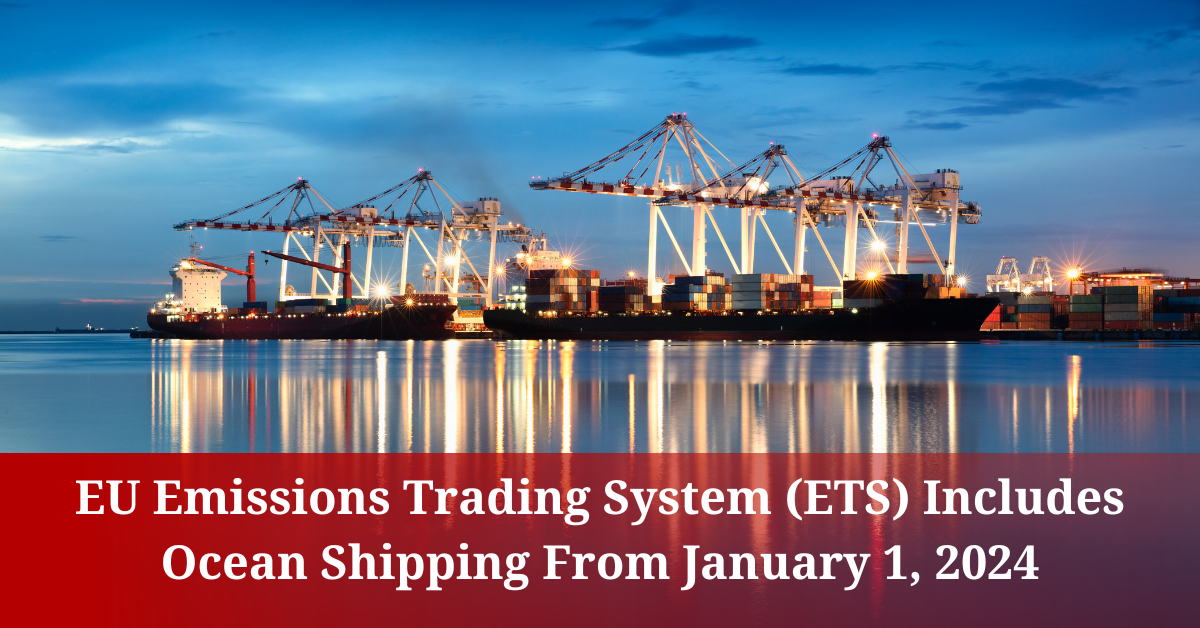What does the scope expansion of the EU Emissions Trading System (ETS) mean for Ocean Shipping Companies?
While maritime shipping methods are among the most influential in the world economy, ocean vessels are among the largest emitters of greenhouse gases (GHGs). In response to the industry’s projected emissions growth, starting January 1, 2024, shipping companies will be part of the EU’s Emissions Trading System. As part of this extension, the owners of freight vessels navigating within and to/from the European Economic Area (EEA) will need to pay a portion of greenhouse gas emissions emitted during that sailing.
The Scope of the International Maritime Organization (IMO) and How It Aligns With The EU Emissions Trading System
In 2023, the International Maritime Organization (IMO) revised their greenhouse gas emission strategy to include the ambitious goal of complete decarbonization by 2050. The EU ETS (European Union Emissions Trading System) scope expansion into the ocean shipping sector and the IMO (International Maritime Organization) 2023 GHG (greenhouse gas) strategy are two significant, but separate developments aimed at addressing emissions from maritime activities. While they operate independently, efforts are made to ensure alignment and synergy between these initiatives.
The EU ETS operates on a cap-and-trade system that limits the total allowable emissions. Companies are allocated allowances that they can trade which creates a financial incentive for companies to reduce their emissions. The IMO’s 2023 GHG strategy focuses on reducing greenhouse gas emissions from the international shipping industry on a global scale. It outlines specific targets to improve the carbon intensity of shipping and aims to decarbonize the sector over the coming decades. The strategy is not region-specific and applies to international shipping, irrespective of the geographical location of the ship or its ports of call.
How Will Both Emissions Strategies Affect Canadian Import/Export Companies
The implications of the EU ETS and IMO 2023 GHG strategy for Canadian ocean shipping activities are vast and may affect the Canadian economy, shippers, importers, and exporters in various ways.
In practical terms, costs may be passed to customers in the form of increased shipping rates or surcharges. The mechanism by which these costs present for the customers will vary between shipping companies but may be a general rate increase, fuel surcharge, and environmental surcharge. As a result, Canadian businesses relying on shipping services for importing or exporting goods may experience cost implications across the supply chain.
Higher compliance costs for Canadian shippers may impact their international competitiveness, particularly in sectors with tight profit margins, potentially disadvantaging Canadian exporters. Changes in global trade dynamics, influenced by international regulations and emissions standards, could lead to shifts in demand for Canadian goods based on the shipping industry’s environmental performance, affecting the flow of goods to and from Canada.
The shipping industry may explore technological innovations and operational changes to improve fuel efficiency and reduce emissions, potentially mitigating some associated costs over time.
For more information, please contact the Canaan Group sales team.


